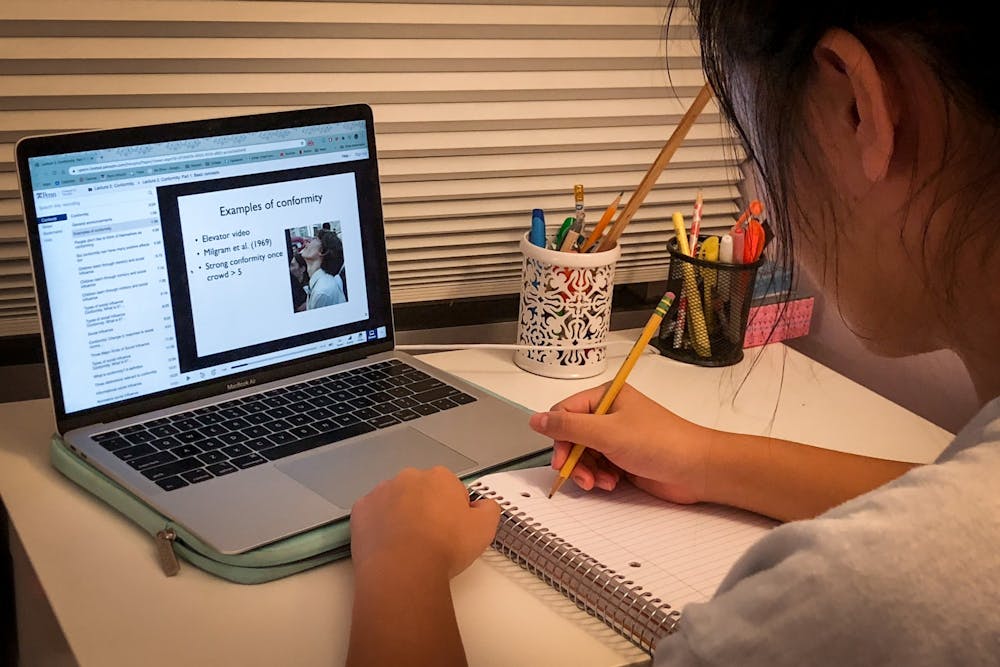After over a year of learning almost exclusively online, Penn students face the prospect of returning to in-person classes. This is welcome news to Penn students, many of whom expressed excitement about the prospect of in-person classes, while also displaying fatigue from online ones.
That doesn’t mean online learning has been exclusively negative. Some Penn students have expressed appreciation for the positive aspects of it, citing online learning’s flexibility as a valuable benefit. As such, Penn professors should take the aspects of online learning that are beneficial, such as recorded lectures, accommodations for COVID-19, and online exams, and implement them in in-person classes.
One of the benefits of online learning is that it isn’t just live; it’s often recorded. This allows for repeat viewing or catching up on content missed on a sick day. Students have expressed support for the recorded nature of online classes. Recorded courses also benefit professors, as it allows them to check up on students.
Admittedly, it might not always be possible to have recorded lectures, particularly in smaller, seminar-based classes. However, this could be accommodated through audio recordings of classes, or through a video conferencing feature.
Furthermore, online courses permit greater accessibility during periods of sickness, especially COVID-19. In the event of a positive COVID-19 test, students will have to quarantine regardless of vaccination status, likely missing multiple classes in the process. However, there is no clear, publicly announced protocol in place for academics if a student tests positive for COVID-19. Given this, students who do test positive would not fall behind only if there is some resource for them to learn online. These resources, in addition to coming in the form of online classes, could also come with greater access to course material prevalent during the pandemic.
Finally, professors should administer online exams. Online exams allow for greater student comfort, and as such, help prevent testing anxiety from interfering with recall of knowledge. This leads to a more accurate reflection of student understanding of course material. Of course, there are valid concerns regarding academic integrity, but through administering open-ended exams, online test taking could become a practical option.
In-person classes are a welcome addition to the fall semester. However, that doesn’t mean that online classes were all negative. Professors should take these positives, and use them to enhance the academic experience of Penn students.
Editorials represent the majority view of members of The Daily Pennsylvanian, Inc. Editorial Board, which meets regularly to discuss issues relevant to Penn's campus. Participants in these meetings are not involved in the reporting of articles on related topics.
SEE MORE FROM THE DAILY PENNSYLVANIAN EDITORIAL BOARD:
Penn reinstated its mask mandate. It’s up to students to make sure it’s successful
Today is Juneteenth — take a moment to understand its significance
SEE MORE FROM THE DAILY PENNSYLVANIAN EDITORIAL BOARD:
Penn reinstated its mask mandate. It’s up to students to make sure it’s successful
Today is Juneteenth — take a moment to understand its significance









